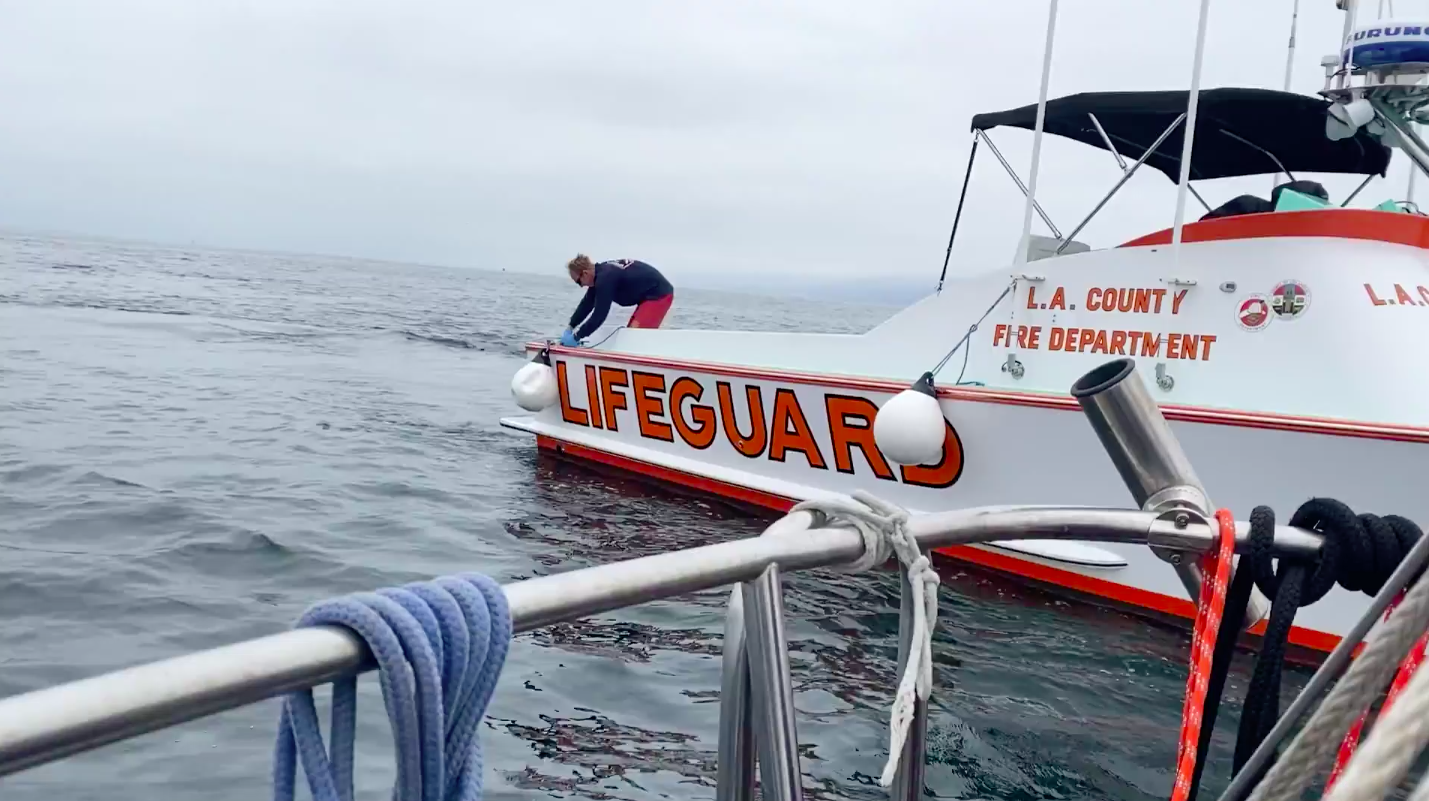 Reported By Jason Kandel
Reported By Jason Kandel
During an outing in his sailboat Defiant one Sunday in September, Koz Khosravani marveled at a pod of dolphins that swam near his boat and directed his gaze to the unthinkable — a hand surfacing in the choppy water.
Maybe he was seeing things, he thought. It could have been the glint off a dolphin's back, for all he knew.
"I thought it was a mistake," he said.
He got closer and saw a woman floating on her back.
He threw a floatation device into the water, but she couldn't hold onto it. Khosravani maneuvered his boat around for a better position. The rescuers tossed in a rope. She held on as they pulled her onto the boat to safety.
The rescuers wrapped the woman in a towel and blanket. Khosravani asked her name and whether anyone else was with her. She was alone.
Khosravani radioed for help — the first time using his radio in an emergency.
"May Day. May Day. May Day. This is the sailing vessel Defiant in the Santa Monica Bay … Immediate medical emergency."
Matt Rhodes, a Los Angeles County lifeguard rescue boat captain, got the call before noon. He responded within minutes.
The young woman was not wearing any clothes. Her skin was the color of ash. She was hypothermic and barely coherent.
If she had not been found right then, Rhodes believes she would have died within minutes. She had been treading water for nearly 12 hours in 66 degree waters. "What are the chances another boater would have spotted her?" Rhodes said he thought.
"She's very lucky," said the 20-year lifeguard veteran. "She was in such a bad state that if she had not been picked up out of the water, wrapped in blankets … the potential for something really bad happening to her would have been much greater."
She told Rhodes and his partner that she got in the water at midnight in Venice to go for a swim. She said the current swept her offshore. The woman, who Rhodes did not identify due to medical privacy issues, was treated for hypothermia at a hospital and released three days later.
Khosravani, a former information technology professor, feels fortunate he was prepared to make a rescue. Fresh out of sailing school, he had the gear and the knowledge of ocean rescue.
"I was in the right place at the right time," he said.
He's not religious, but his being there that day makes him think twice that there was something larger at play. Buying a boat and safety gear, his training and the dolphins catching his eye, drawing his attention to the hand in the water -- all of that was no accident, he said.
"I think there was a reason they were there," he said. "I just cannot believe that at that moment they crossed in front of my boat."
"Part of it was just luck," he said. "Part of me believes there was something more to it."











Social Buttons